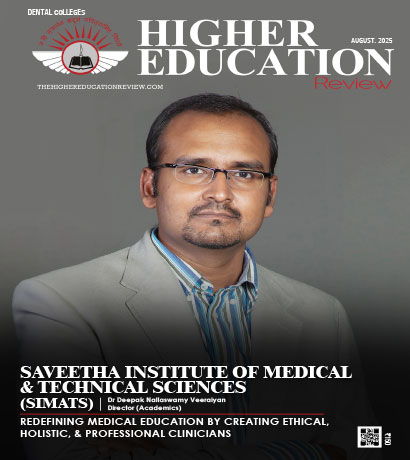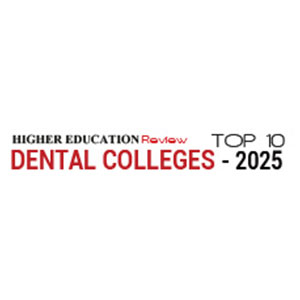Cover Story
Medical education in India faces challenges such as outdated curricula, limited practical training, and overcrowded classrooms, making it difficult for students to learn effectively individually. Competency-based education, proposed by the National Medical Commission, aims to address these issues; however, most institutions struggle to meet global proficiency-based standards that focus on practical skills. According to recent estimates, the healthcare education market in India will expand at a Compound Annual Growth Rate (CAGR) of 8.5 percent till 2030 due to the increasing number of skilled professionals. However, there are still loopholes in clinical exposure, research, and industry alignment, thus requiring institutions to revolutionize medical education. Saveetha Institute of Medical & Technical Sciences (SIMATS) is addressing these challenges with a forward-thinking approach. SIMATS exceeds the competency-based model proposed by the NMC by incorporating proficiency-based...
Content
-
Shaping the Future of Oral Healthcare
Mary Janifha Evangeline. X
-
How BFSI Education will be shaped by AI
Dr Soumyadip Roy, Associate Professor and In-Charge Director, UNext Manipal Academy of BFSI
-
Empowering Growth through Continuous Learning
Priyanka Anand, VP & Head HR, Southeast Asia Oceania & India, Ericsson
-
From Intent to Impact: Designing Talent Strategies that Drive Organizational Effectiveness
Suman Mitra, Human Resource & Vice President - Employee Relations, Tata Electronics
-
How Future-Ready HR Creates Purpose-Driven Career Journeys
Swati Patwardhan, CHRO, Nucleus Software
-
Beyond Degrees: How B-schools must evolve to Build Entrepreneurs
Prof. Himanshu Rai, Director, IIM Indore
-
Coding vs. Core Engineering: Which One to Pursue?
Jayanth K Singh, Professor - Department of Chemical Engineering, IIT Kanpur
-
Why a Positive Work Culture is Crucial for the Success of New Hires
Aakash Thakur, Vice President & Head Corporate Human Resources, Vardhman Textiles


